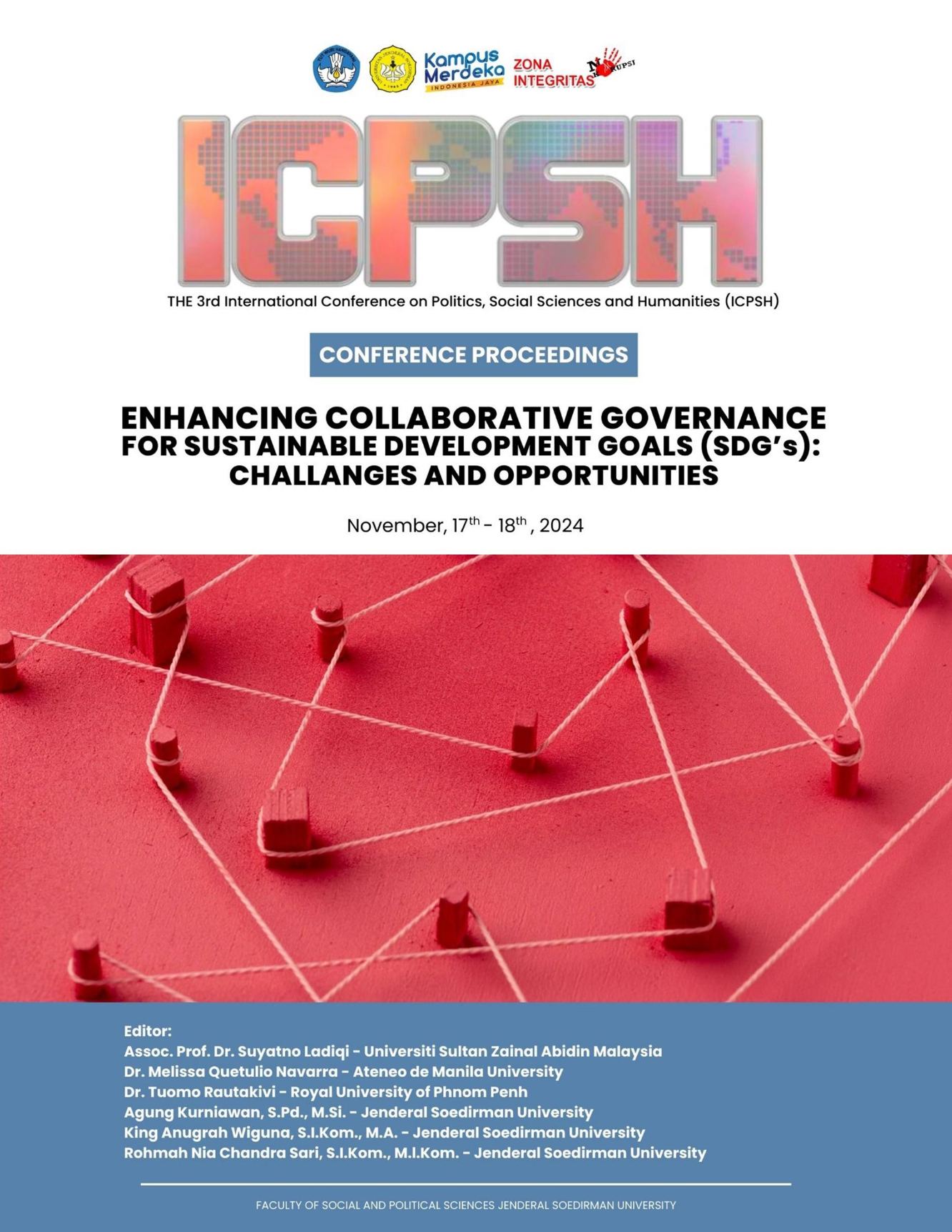Collaborative Waste Management for SDG 12 in Banyumas Regency: A Case Study of the 'Sumpah Beruang' Program
Abstract
This research examines the collaborative efforts between the government and the local community in managing waste in Banyumas Regency, Indonesia, through the 'Sumpah Beruang' program, which stands for Transforming Waste into Wealth. The study investigates how this program, initiated by the local government in collaboration with Community Self-Reliance Groups (KSM), has contributed to achieving Sustainable Development Goal 12 (Responsible Consumption and Production) through the reduction of waste and the promotion of recycling practices. Employing a qualitative method, this study analyses data gathered from government reports, interviews with key stakeholders, and relevant literature. Findings show that the 'Sumpah Beruang' program has successfully engaged local communities in waste management processes, turning waste into valuable resources such as compost and recycled materials. However, challenges remain in scaling up the initiative and addressing the structural issues of waste segregation and collection. The research concludes that while the program significantly supports SDG 12, a more robust policy framework and increased community participation are required to ensure its longterm sustainability and broader impact.



